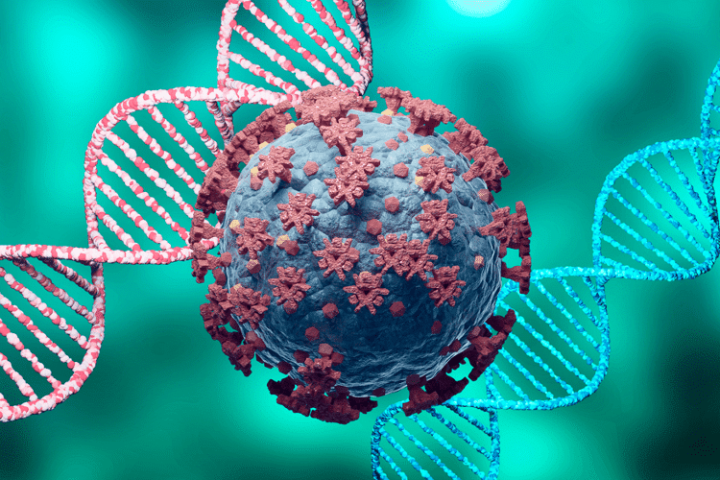
Pfizer Inc. chairman and CEO Albert Bourla said on Tuesday that he considered it “likely” that a vaccine-resistant coronavirus variant would eventually emerge, while reassuring us that the company has a system in place to facilitate the speedy turnaround of a variant-specific vaccine.
During his appearance on Fox News’ America’s Newsroom, Bourla said the company was very much focused on “keeping up with the variants [of COVID-19]. “Every time that variant appears in the world, our scientists are getting their hands around it. They are researching to see if this variant can escape the protection of our vaccine.” While saying that no such variant has been identified yet, the Pfizer scientists believe that “it is likely that one day, one of them will emerge,” Bourla said.
The company is now able to have a vaccine “tailor-made” within 95 days of the identification of any new “variant of concern,” as this has been done with the Beta variant, according to Bourla.
The Pfizer top executive also praised the shot as the “most researched medicine in the world,” when speaking of its safety and efficacy. During the interview, he also noted the company would not focus on persuading vaccine-hesitant people to take the shot now that it has been granted a full FDA approval. Instead, the company will do its best to expedite the production of jabs since global demand for them is much higher than supply, and plan to release an additional two billion doses by the end of 2021. Bourla also referred to the large-scale studies on the Pfizer-BioNTech vaccine, now rebranded “Comirnaty,” for children aged 5-11, which he said will be concluded in September.
This is not the first time the concern of vaccines losing effectiveness has been brought up, and as recently as late July, Centers for Disease Control and Prevention (CDC) Director Rochelle Walensky warned Americans that the coronavirus is “potentially a few mutations away from evading our vaccines.”
Around the same time, the U.K. government’s advisory panel, the Scientific Advisory Group for Emergencies, said it was “almost certain” that higher rates of virus circulation and transmission would create “more opportunities for new variants to emerge.”
A similar view is shared by the World Health Organization (WHO), which speaks of the “constellation of mutations” that will lead to vaccines losing their potency against the coronavirus.
All of these entities promote universal vaccination as the only means of stopping the spread of the virus and preventing it from further mutations, seemingly ignoring the rapidly growing number of the breakthrough infections that suggest the virus may mutate in vaccinated individuals just as easily as in unvaccinated ones. This, in turn, suggests that the virus is already beating the vaccines. For example, in Israel, one of the most vaccinated countries in the world and which uses the Pfizer vaccine exclusively, half of all new infections are in fully inoculated persons.
Other scientists warn against the “arms race” between vaccines and the virus, arguing such competition would turn in favor of the virus.
Dr. Robern Malone, inventor of the messenger RNA technology used in Pfizer-BioNTech and Moderna vaccines, explicitly stated the “strategy to universally vaccinate in the middle of the pandemic is bad science and badly needs a reboot.” Dr. Malone further explains:
The essence of this arms race is this: The more people you vaccinate, the greater the number of vaccine-resistant mutations you are likely to get, the less durable the vaccines will become, ever more powerful vaccines will have to be developed, and individuals will be exposed to more and more risk.
Rather than carpet-bombing the whole population with the “leaky” vaccines and boosters, Malone suggests administering jabs only to the most vulnerable patients, which would limit the number of vaccine-resistant mutations. “For much of the rest of the population, there’s nothing to fear but fear of the virus itself,” Malone argues.
His colleagues from across the pond, U.K. Professor Andrew Pollard of Oxford University and Paul Hunter of University of East Anglia, both voiced their concerns that mass vaccination would not lead to herd immunity since the infection spreads in both vaccinated and unvaccinated people, and that “the virus will throw up a new variant that is even better at infecting vaccinated individuals.” In agreement with Dr. Malone’s proposed solution, they argue that only at-risk cohorts receive the jab, while governments should stop reporting the positive cases that “actually don’t translate into disease burden,” since this only needlessly frightens people. Given the fact that the Delta variant is more transmissible, but less deadly, than its previous versions, such an approach sounds reasonable. However, governments are taking just the opposite approach.
To counteract the vaccines’ waning protection against the virus and its mutations, governments worldwide embrace the idea of recommending booster shots. The CDC now recommends an additional jab to immunocompromised people. In what looks like a display of the bureaucratic dissonance between two federal agencies, the CDC does not recommend additional doses or boosters for any other population at this time, while the Department of Health and Human Services (HHS) has announced a plan to begin offering boosters to the general population beginning the week of September 20 and starting eight months after an individual’s second dose.
On Tuesday, Israel authorized the application of the third dose of the Pfizer vaccine for those older than 30.




